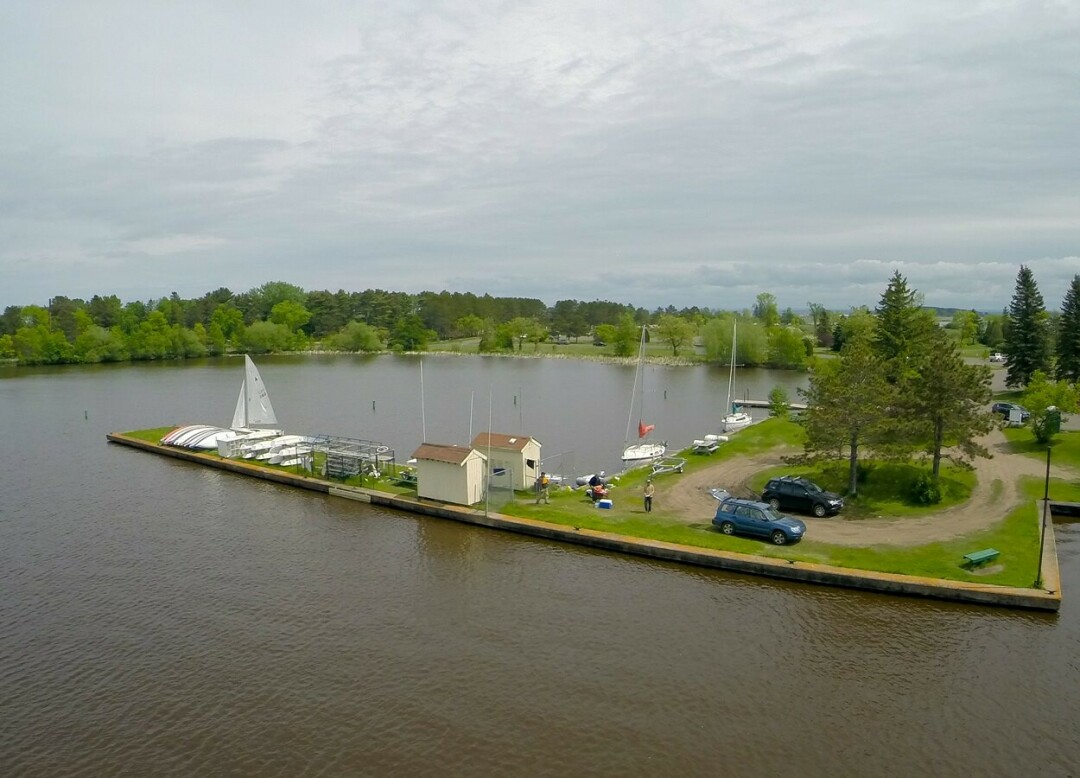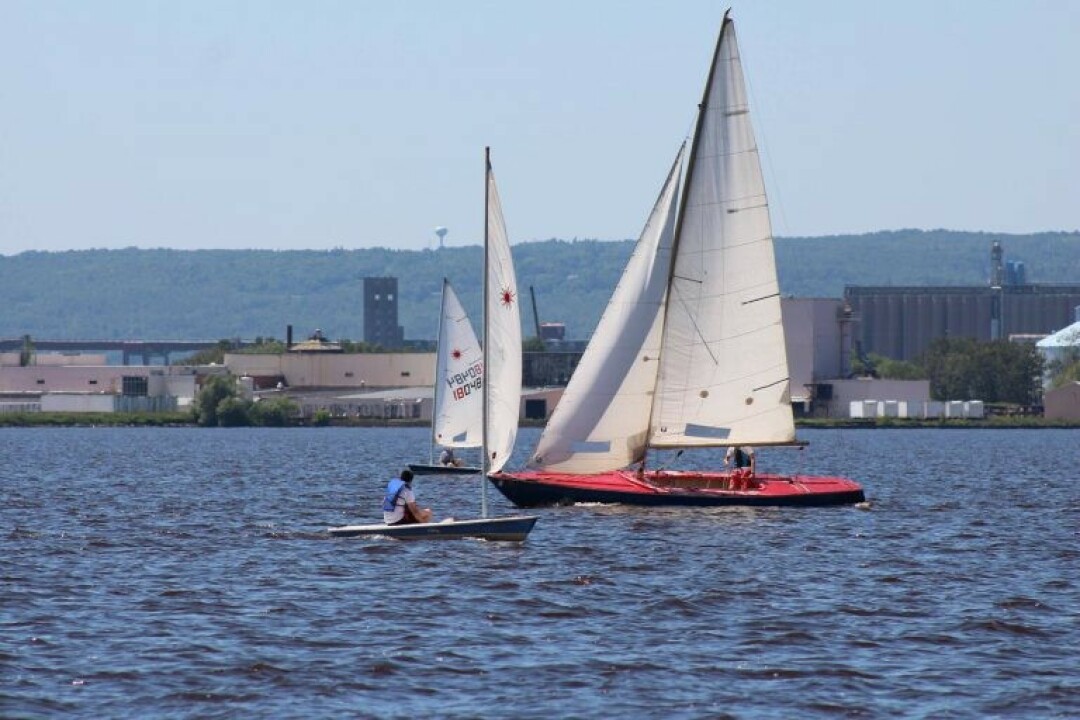News & Articles
Browse all content by date.

Drone shot of the Duluth Superior Sailing Association. (Photo: DSSA)
Since an article is nothing without an audience, I shall imagine a Reader fan to direct this message to. If you see at least part of yourself in this hypothetical Duluthian, then feel free to listen in.
Stepping out of the cool with snow blowing in your face, you grab a Reader and sit down at the table at Sir Ben’s. You don’t know much about sailing but are curious how hard it would be to try a new hobby next spring.
Maybe you are economically challenged. You aren’t alone. A recent Forbes study said 63 percent of Americans can’t afford a $500 emergency.
Or maybe you are good on money but are really cheap. Good news. It turns out sailing is more accessible than you think.
Sailing vessels come in all shapes and sizes from yachts to inflatable sailboards. Since they all operate on the same physical principles and require the same basic understanding, even the broke can participate in a way that makes them feel like a true sailor.
Even if you only sail small boats on sheltered waters, you can feel like you are kind of a microcosm of guys sailing across the ocean. When reading a book like Joshua Slocum’s classic Sailing Alone Around the World you can then better visualize his journey. Or, you can even have an enjoyable conversation with someone with a more advanced vessel.
Since you are reading this in a bar, I better get to the point. My main piece of advice is, the easiest and possibly most economical way for a Duluthian to get started sailing is to join the Duluth Superior Sailing Association (DSSA). I have more to say, but if your friends just walked in just remember the DSSA come spring.
If you are still here, you should know the DSSA is a nonprofit business that works to make sailing available for anyone. Fittingly their website is sailingforall.org.
Becoming a member for a reasonable annual amount and taking their boats out is a great way to get started. You may have to pay a little more in the first year for affordable sailing lessons.
The DSSA has all kinds of boats, starting with small boats which 8-year-olds can safely navigate around the cove. They have adult-size, single-person boats called Lasers. They have several multi-passenger boats capable of sailing the bay and a few boats that can go on the big lake.
If you decide to get your own boat, the first thing to understand is that rich sailors dock their boats, while poor sailors trailer, carry in (if very small) or moor their boats. Dock space at some place like Barker’s is expensive, especially if your boat is only worth a couple thousand dollars. Also, most of these “blue water” boats can’t be trailered and our thick ice means you must pay someone to hoist it out of the water and store it for the winter for big bucks.
Mooring a boat is a perfectly legal procedure where a chain tethers your boat to a large weight at the bottom of the water. When you are out sailing a mooring ball floats and keeps the chain from sinking down to Davy Jones Locker.
Mooring permits can be obtained from the St. Louis County Sheriff’s Department for a nominal fee.
By the way, the reason for docking or mooring a medium-sized sailboat is due to the main drawback of sailing – those giant masts are difficult to raise, and MN Power doesn’t want people driving around with their masts up.
Now unfortunately the cost and size of your boat will determine what body of water you can safely go on. Boats that cost lots of money are more likely to safely sail Lake Superior and most of these people don’t even raise the sails till they get on the big lake.
Still, sailing around the bay or smaller lakes gives you that “sailing feeling,” just on a slightly smaller scale.
Being smaller you can think of yourself as being more of a maneuverable pirate. If one of those big boats chased your small boat with a small keel or a centerboard you could sail into the shallow Allouez, like Blackbeard you could sail far into shallow waters while your pursuers must stop or get stuck in the mud.
Here’s another piece of sailing wisdom: expensive boats usually need deep water. Also, the smaller boats are maneuverable enough that they usually don’t need motors (though they help).

Sailor having fun with DSSA boats. (Photo: DSSA)
| Tweet |


